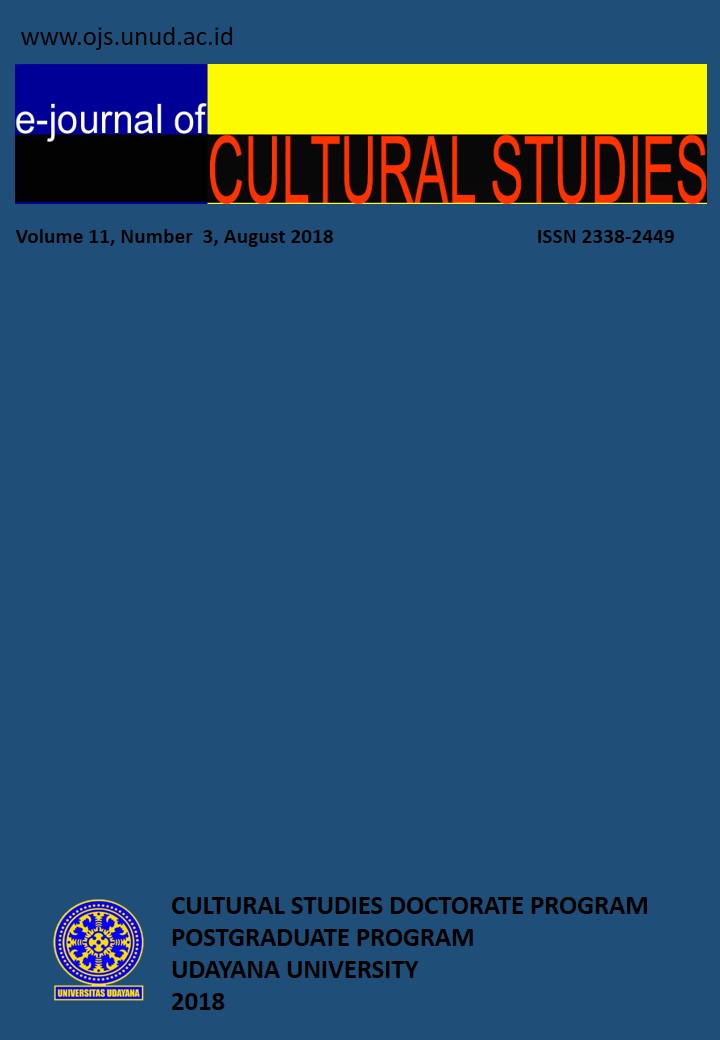THE DISCOURSE OF PADANG RESTAURANTS IN GUS TF SAKAI’S NOVEL ULAR KEEMPAT
Abstract
The topic of the research is the novel titled Ular Keempat (the Fourth Snake) by Gus tf Sakai. It is focused on the text of Rumah Makan Padang (Padang restaurants) in the novel based on the study of cultural studies literature. In the final part of the story of Ular Keempat, there is a side text of Rumah Makan Padang. The main point of the research is the archeology of Rumah Makan Padang. The approaches used are the Foucault‘s discourse and Derrida‘s deconstruction.
The result of the study shows that the essence of the story of Hajj trip in the articulation of Minangkabau people‘s view of life can be revealed in some texts. First, text of Padang was the episteme discourse built by the Dutch East Indies goverment. Second, the discourse of Minangkabau Sufistic culture systemically was demolished by the Dutch East Indies government. Third, the discourse of Minangkabau culture was systemically controlled by the Dutch East Indies government. Fourth, the discourse of Dutch colonial‘s liberal culture is actually continued by the Indonesian government towards Minangkabau culture. Fifth, the literary approach can be applied by studying the metaphors and cultural hospitality. Through this research it can be argued that the text of Hajj trip, in the novel of Ular Keempat, is a manifestation of the essence of merantau text empirically. Life for Minangkabau people is actually migration and after life is the true home; this is theirlife view. Thus, Minangkabau culture is actually a sufistic culture, and surau is the center of Minangkabau culture.







